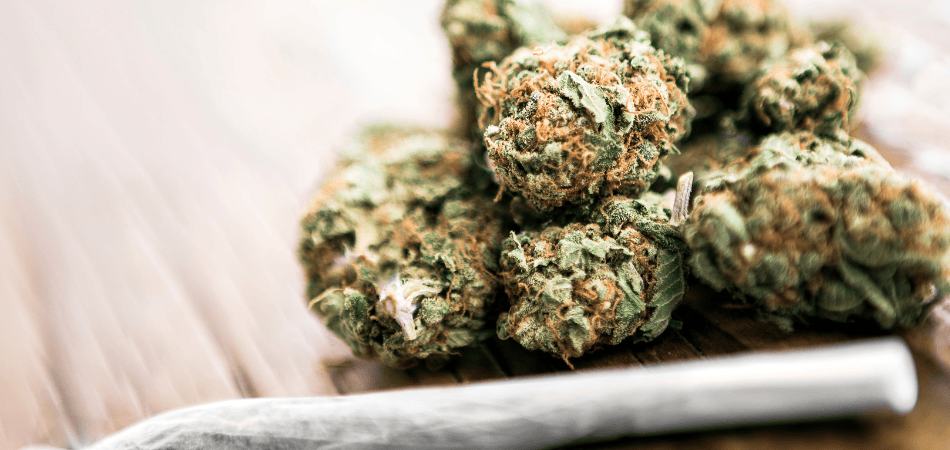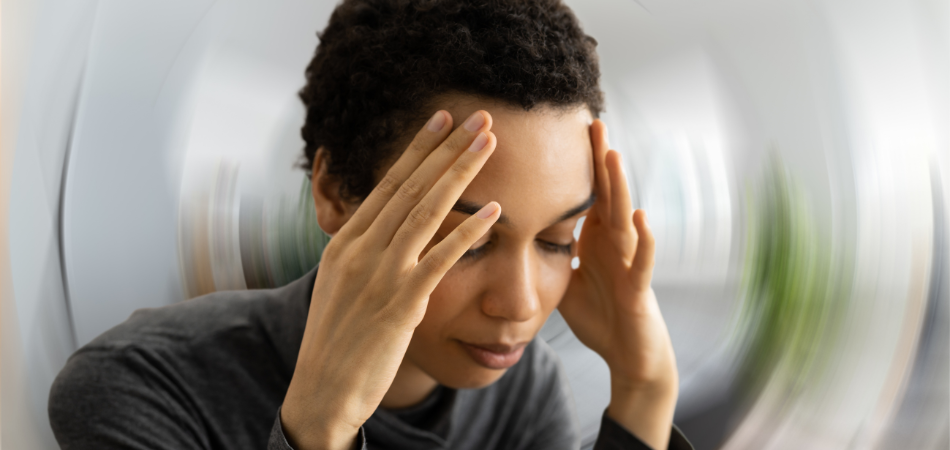
Written by:

Medically Reviewed by:
Last Updated:
February 14th, 2025
Cannabis addiction
Is cannabis addictive?
While cannabis isn’t addictive in the same way as cocaine or heroin, there is evidence to suggest it can lead to psychological dependence. This type of dependence occurs when someone feels the need to use a substance to cope with certain emotions or situations rather than relying on it for physical reasons.
Over time, this reliance can make it difficult to relax, sleep or feel content without cannabis, leading to a habit that’s hard to break. Unlike physical addiction, where the body craves the substance, psychological dependence is more about the mind.
So, while cannabis may not create a physical addiction, the mental attachment can still impact daily life and make quitting challenging for some people.

When does cannabis usage become ‘problematic’?
Over the years, society’s perception of cannabis has evolved significantly. While it remains illegal for recreational use in the UK, many have turned to cannabis for its medicinal properties, believing it can alleviate everything from chronic pain to anxiety. This shift has led to a noticeable increase in cannabis usage across the nation. But amidst this growing acceptance, the question remains: when does cannabis usage shift from being manageable or even beneficial to problematic?
The line between casual or medicinal use and problematic use can sometimes be subtle, but there are signs to watch for. Imagine a person who started using cannabis to ease stress after work. It begins as something they do occasionally but soon they find themselves using it daily, feeling restless or irritable if they can’t smoke. The goal has shifted from relaxation to feeling dependent on cannabis to function normally.
In another scenario, a friend who once enjoyed cannabis socially now cancels plans, preferring to stay home and smoke alone. They might shrug it off, claiming they just need some “me-time,” but if cannabis starts taking priority over social interactions or responsibilities, it may signal a deeper issue.
Some people find that cannabis use begins to affect their performance at work or school. What once helped them unwind now leaves them feeling unmotivated, struggling to focus or unable to get through the day without a hit. When usage interferes with daily life and responsibilities, it’s often a sign that cannabis is becoming more of a hindrance than a help.
Each of these scenarios highlights that cannabis use can shift into problematic territory when it starts taking control rather than being a tool for relief or enjoyment. If any of these examples feel familiar, it may be worth considering whether it’s time to reevaluate your relationship with cannabis.
How can a cannabis addiction impact my life?
Cannabis addiction, though often underestimated, can have a significant impact on your life, especially when use transitions from casual to habitual. While some dismiss cannabis as a harmless plant, it can lead to various physical and mental health issues when used excessively.
Am I addicted to cannabis?
If you’re using cannabis, whether legally or illegally, it’s always worth checking in on yourself. This can help you determine if you’re already dealing with an addiction or perhaps even prevent one from happening in the future. Start by asking yourself these questions:
- Do you find yourself needing to use cannabis more frequently or in larger amounts than before to achieve the same effect?
- Have you tried to cut down or quit using cannabis but found it difficult or impossible?
- Do you spend a lot of time thinking about or planning when you can next use cannabis?
- Has your cannabis use caused issues in your personal relationships, work or daily responsibilities?
- Do you experience irritability, restlessness or other withdrawal symptoms when you haven’t used cannabis for a while?
Answering ‘yes’ to one or more of these questions might be a sign that it’s time to reassess your relationship with cannabis.
Where can I get help for a cannabis addiction?
If you’re struggling with cannabis addiction, Liberty House can help. Our programme begins with an initial assessment, where we determine whether a detox is necessary—especially if you’re using other substances alongside cannabis. We provide a safe, supportive environment for detox if needed, monitored by 24/7 medical staff.
Once stable, you’ll start therapy. We offer evidence-based therapies like CBT (Cognitive Behavioural Therapy) and DBT (Dialectical Behaviour Therapy) to address the root causes of addiction. We also incorporate holistic treatments such as yoga and art therapy, promoting overall well-being and a healthy balance between mind and body.
After completing your treatment, you’ll benefit from our comprehensive aftercare plan, designed to help maintain sobriety and provide continued support as you transition back into daily life.
What’s next?
If you or a loved one is struggling with cannabis addiction, now is the time to take the first step toward recovery. At Liberty House, we offer compassionate, professional care designed to help you regain control of your life. Contact us today to begin your journey to a healthier, addiction-free future.
Frequently asked questions
(Click here to see works cited)
- Connor JP, Stjepanović D, Le Foll B, Hoch E, Budney AJ, Hall WD. Cannabis use and cannabis use disorder. Nat Rev Dis Primers. 2021 Feb 25;7(1):16. doi: 10.1038/s41572-021-00247-4. PMID: 33627670; PMCID: PMC8655458.





